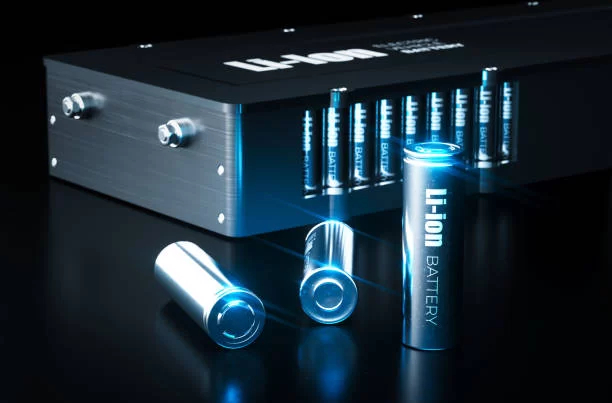How Long Do Lithium Batteries Last? A Comprehensive Guide for 2025

What Do We Understand by the Lifespan of Lithium Batteries?
When people ask “how long lithium batteries last?”, they often mean one of two things:
- Cycle life– how many charges and discharges a battery can endure before losing considerable capacity.
- Calendar life– for how long a battery will remain functional in years, with or without use, before its chemistry naturally degrades.
For most modern lithium batteries, the nominal cycle life is 2,000 to 5,000 cycles. In practical terms, that’s equivalent to 8–15 years depending on use, charging habits, and environmental conditions.
Key Factors Affecting Lithium Battery Life
Lithium batteries are not all the same. Their lifespan depends on a number of factors:
- Depth of Discharge (DoD):Discharging fully each time shortens life; discharge partially to extend life.
- Temperature:High temperatures accelerate chemical degradation; very low temperatures may decrease efficiency.
- Charging Behavior:Full charge acceleration generates heat and stress, while slow and balanced charging will do much to preserve capacity.
- Application Type:EV batteries, solar storage batteries, and consumer electronics all have different demands.
So, if you’re thinking of how long do lithium batteries last, the honest answer is: it depends on how you use them.

Real-World Case Study: Electric Vehicles
A good example of understanding lithium battery lifespan is by looking at electric cars.
In California, where the take-up of EVs is amongst the most extensive in the world, Tesla reported that its Model 3 lithium batteries retain over 80% capacity after 200,000 km of driving. That amounts to approximately 8–10 years of driving for a typical driver.
Why would non-EV users be interested? Because the exact same chemistry—lithium-ion—is used extensively in solar power storage, home systems, and even telephone backup batteries.
Industry Trends: The Push Toward Longer Life
Through 2025, lithium batteries are being engineered to last longer because:
- Solid-state lithium technology– reducing overheating hazards and optimizing cycle life.
- Advanced Battery Management Systems (BMS)– using AI-driven algorithms to monitor real-time charging and discharging.
- Recycling and second-life initiatives– optimizing useful life through reuse of EV batteries for stationary energy storage.
It’s becoming apparent that “how long lithium batteries last” isn’t just a question of chemistry anymore—it’s about smarter design and lifecycle management.
Typical Lifespan Across Applications
Here’s a rough table of how long lithium batteries last depending on where they’re used:
Application | Average Lifespan | Notes |
Smartphones | 2–4 years | Daily deep cycling reduces lifespan |
Laptops | 3–5 years | Heat & aggressive charging are primary issues |
Residential Solar Storage | 8–15 years | Typically built to last 4,000+ cycles |
Electric Vehicles | 8–12 years | Range varies with driving style & climate |
Telecom Backup | 7–10 years | Generally shallow discharges |

Thinking About Costs vs. Longevity
Here’s the typical thinking: Is it worth spending money on lithium batteries when they wear out over time?
In my opinion, yes. Although the initial cost is more than with lead-acid or nickel-based batteries, the greatly extended lifespan and greater efficiency often render them more economic in the long term.
For example, in Germany, residential solar-plus-storage systems using lithium batteries have shown a levelized cost of storage (LCOS) that’s 30–40% lower over 10 years than equivalent lead-acid systems.
How to Make Lithium Batteries Last Longer
If you’re worried about longevity, here are some simple practices that help:
- Avoid charging to 100% or discharging to 0% all the time.
- Keep storage temperatures between 10–30°C whenever possible.
- Use smart chargers or BMS built into the chargers to manage charging cycles.
- For off-season use (like RV batteries), charge up to 40–60%.
These habits seem trivial, but thousands of cycles later, they extend years of life to batteries.
Foldable and Off-Grid Innovations
In off-grid energy storage systems—such as in Rajasthan, India, where villages are illuminated by solar-powered microgrids—lithium batteries reside within collapsible container systems. The systems will go for a decade or more without needing replacement.
That proves how long lithium batteries last is more than an idea; it’s transforming real communities that previously had no electricity whatsoever.
Final Thoughts from the Field
People want to know whether lithium batteries go bad too quickly for serious long-term investment. In fact, their performance has improved only in the last decade, and continuous innovation implies that batteries now are likely to outlast older ones by years.
And while you still hear recycling concerns, new EU and US regulations are keeping lithium batteries from even reaching landfills—but getting reprocessed for raw materials and even reused for fresh applications.
Frequent Questions Answered Naturally
Individuals do ask whether lithium batteries just die on you suddenly. Not at all—they degrade with time. You will notice declining runtimes well before they completely die.
Another question is whether every rapid charge shortens lifespan. The truth: it’s fine to rapid charge occasionally, but rapid charging daily will deplete the battery faster.
Finally, everyone wants to know if lithium batteries will have a 20-year lifespan. Under controlled conditions like grid-scale battery storage, some high-quality lithium batteries are already reaching that threshold, but for consumer electronics and EVs, 10–15 years is still the realistic figure.
